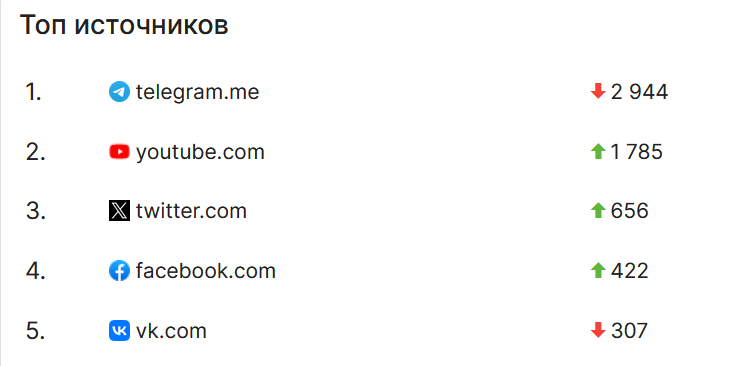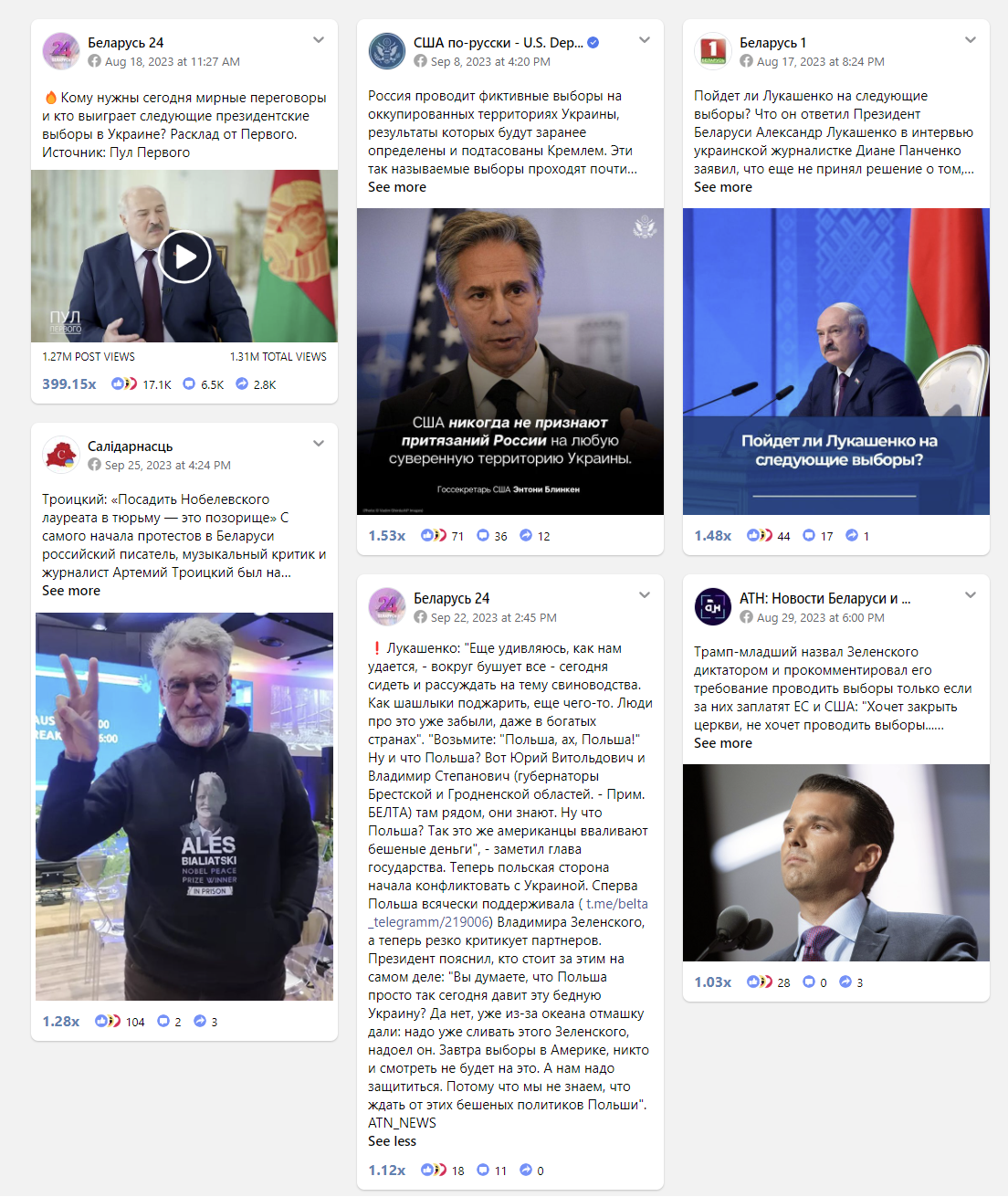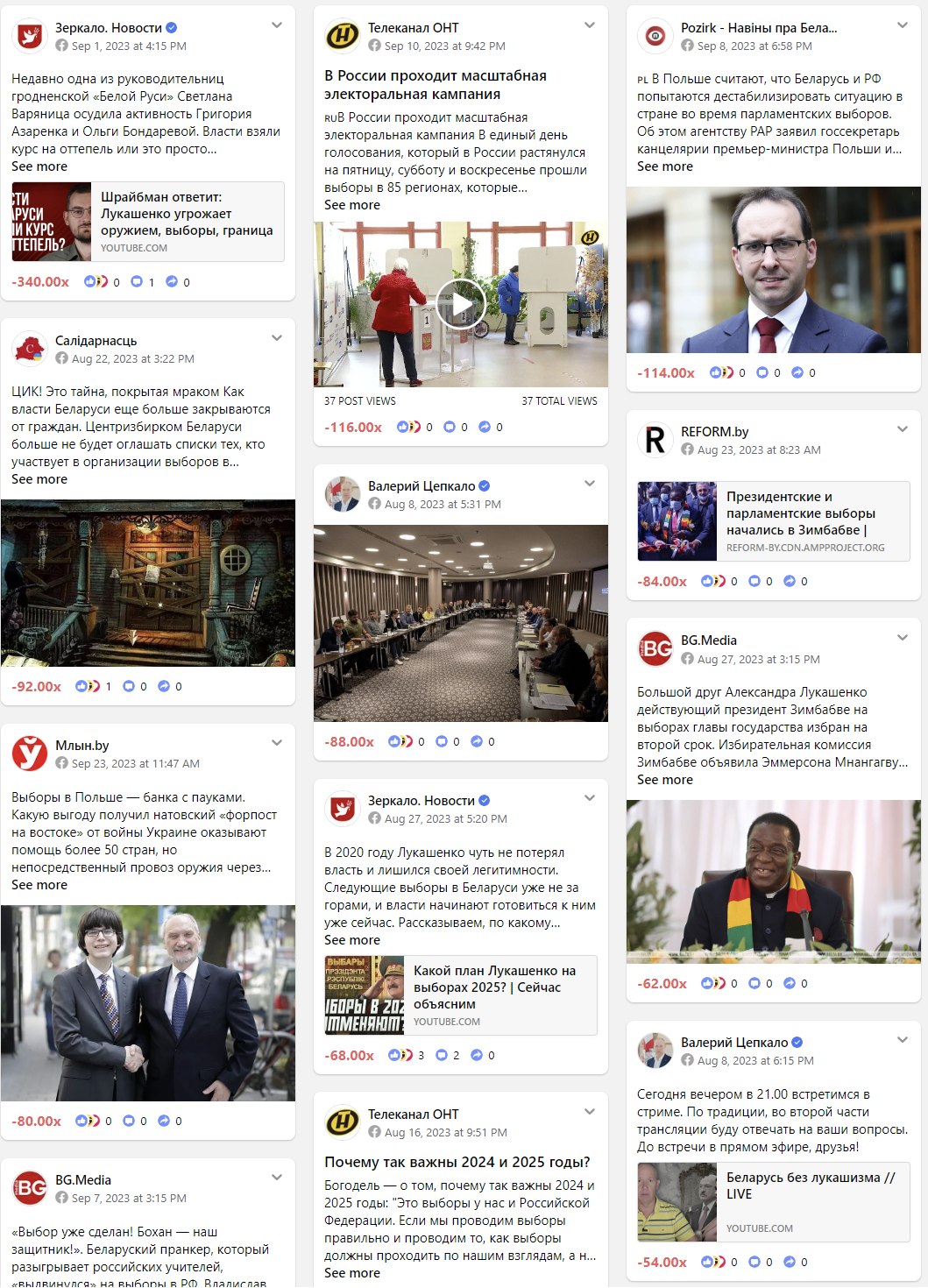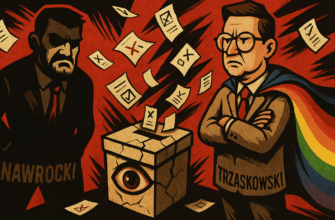The upcoming 2024 will feature a large number of electoral campaigns in various countries around the world. A unified voting day is also expected in Belarus on February 25, 2024, when deputies of the House of Representatives and local Councils will be elected.
As reported by the government-controlled “Belarus Today” here:
Subsequently, elections of members of the Council of the Republic, delegates of the All-Belarusian People’s Assembly from civil society entities, and deputies of local Councils will take place. Preparation for the significant electoral campaign is in full swing.
The main sources mentioning “elections” in Belarus during these two months are:

Alright, since we’ve kicked things off, let’s analyze the word “elections” on the social media platform Facebook, owned by the American company Meta, for August-September 2023.
Turns out there weren’t many such posts. Only 146 posts in total, which garnered just over 27,000 interactions.
The posts that were most effective (Overperforming):

Let’s define:
Most Effective (Overperforming) / Least Effective (Underperforming)
As calculated within the framework of the monitoring platform used for the social network Instagram. The last 100 posts from the given account are taken. Then the top and bottom 25% of these 100 posts are discarded, and the average number of interactions between the middle 50% of posts at each age (15-minute, 60-minute, 5-hour old, etc.) is calculated. Then, the current interaction value for the analyzed post is taken and divided by the average value of the previous 100 posts.
For instance, if 100 interactions were expected and the post gathered 200, then the coefficient will be 2x, and conversely, it’s recalculated with a negative value.
It’s particularly interesting to delve into what “didn’t take off”, as this should help in shaping one’s promotion strategy on the popular social network:

The expert community expects that the upcoming electoral campaigns worldwide will be accompanied by a vast amount of misinformation, disinformation, including that generated in various ways using artificial intelligence capabilities.
For instance, here are some headlines from the Belarus1 TV channel:

One could conduct entire interactive media literacy quizzes with such a game mechanic, for example: “Identify which publications contain false information?” This task is based solely on reading the headline. The next iteration involves a direct acquaintance with the full media content of the publication.
Considering that out of the 19 publications mentioning “elections” on the Belarus1 TV channel’s page, six were disinformation messages about the parliamentary elections in the Republic of Poland, which will take place on October 15, 2023. Four publications were about the elections in Ukraine, which have not yet been announced, and another four about the US elections (November 2024), exclusively from Donald Trump’s perspective. Only one publication about the upcoming “elections” in Belarus next year can be considered relevant, discussing the Central Election Commission’s active phase of preparation.
It is essential to organize the maximum number of monitoring campaigns to detect disinformation, for discussion, analysis, and forecasting of election results.
Publication prepared by the Baltic Internet Policy Initiative.










Comments are closed.